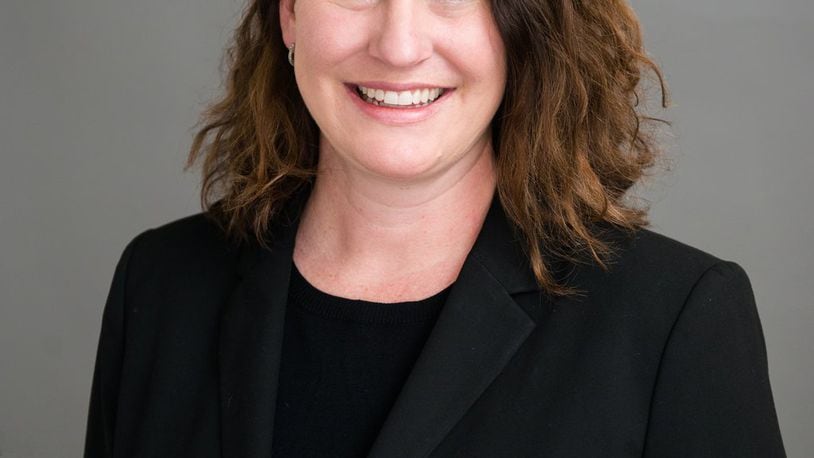OHIO POLITICS: Ohio Supreme Court kicks statewide kidney dialysis issue off the ballot
“I know people deeply know people care about disability, mental health and addiction. And I know this because I’ve worked in this field for several years. I volunteer my life just talking and helping families when I’m not working, and people come to me and tell me their stories all the time,” said Bitter, who works for Cincinnati Children’s Hospital and the University Centers of Excellence for Developmental Disabilities.
The 7th Ohio Senate District seat represents half of Warren County, parts of northern Hamilton County and a portion of Butler County, and a Republican has held it since the Voting Rights Act of 1965 required population-proportioned districts.
Bitter faces Republican incumbent Steve Wilson, a retired Lebanon banker who was appointed to the seat last year.
“These issues they are facing impact us all, and they impact obviously health care but also education, work, every area,” said the 44-year-old mother of two developmentally disabled children. “It matters. It deeply connects people.”
Addiction and mental health issues must be addressed on multiple levels, Bitter said.
One level is to talk with children, as young as kindergartners, talking about mental health, she said.
“First of all, this needs start in schools, this needs to start in families,” said the attorney and disabilities rights advocate. “We need to be talking about these issues.”
ELECTION 2018: Ohio Auditor candidate says public has ‘lost confidence’ in politics, government
Bitter said she would introduce legislation to include mental health education in the public school system.
She’d also fight to ensure Medicaid expansion is not cut “because Medicaid expansion actually helps treat people with mental health conditions, and are affected by the opioid crisis.”
Bitter also wants to join the work of some Ohio lawmakers looking at evidence-based programs, and the data, from within and outside the state successfully addressing addiction, mental health conditions and developmental disabilities. That could include local drug courts and mental health courts, such as in Butler County, “that are solving these problems locally, or at least trying to.”
“There are success stories out there, and we need to find them and try to replicate them, or support them and make them better,” Bitter said.
Drug addiction, developmental disabilities and mental health have all been a part of dozens of bills introduced during this current general assembly.
But Bitter said a more comprehensive approach to drug addiction, developmental disabilities and mental health conditions are needed.
“I do believe it is a very bi-partisan issue,” said the self-described “consensus builder” and “collaborator.” “I think if we want to bring Ohio forward, we’re going to have to learn to work together.”
Bitter also said she understands the political landscape, and the lack of success Democrats have had with this Ohio Senate seat
But she said the district is tailor-made for her.
Bitter lives in Symmes Twp. in Hamilton County with her husband and two children, and grew up in the Mount Washington/Anderson Twp. area in Hamilton County. She also has family in Springboro, friends in Lebanon, and spends a lot of personal and professional time in the Mason area in Warren County.
“I know, I identify, I understand where people are coming from … I feel a strong relationship to that county (and the district),” she said.
But the way she wins this race is for Democrats, Republicans and independents vote for her — especially Republicans and independent voters.
“The way I win this race is they have to hear my story. They have to hear where I come from; they have to know my background,” she said.
That background also includes growing up in public service. Her mother was a nurse and her step-father and many uncles were all police officers.
“Public service was a big part of my life, it was ingrained in me,” she said. “They have to know that I am passionate about advocating for all people.”
About the Author
